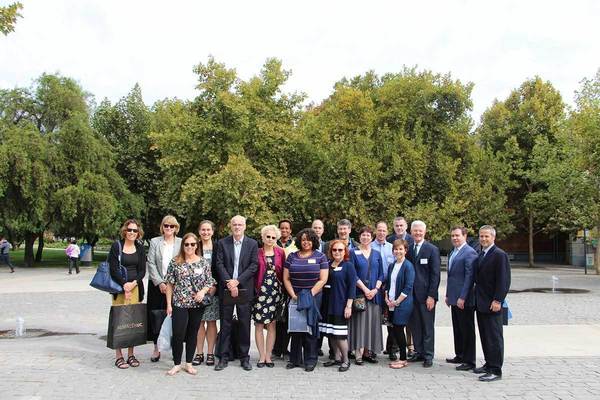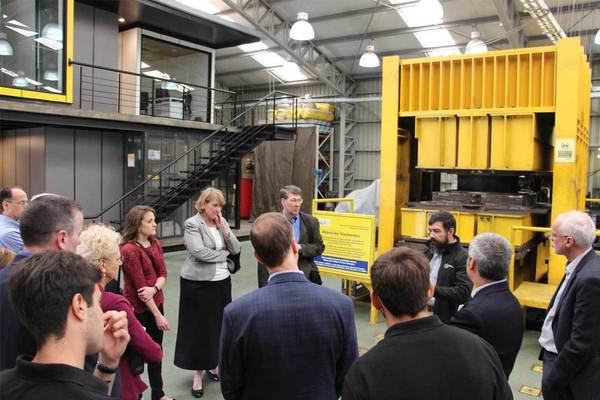
Universities can work independently to advance new discoveries through scientific research. Collaborating with other institutions, however, sparks greater advancements and innovations by tapping into the unique opportunities each academy holds.

The College of Science at the University of Notre Dame has cemented a partnership with the five schools of science within the Pontificia Universidad Católica de Chile (PUC), as part of the Chilean government’s new initiative, “Science and Innovation for 2030.” The partnership was made official in October 2018 with a letter from the funding agency, which outlined details of the collaborative exchange between the two institutions’ science programs.
“We are pleased to have forged this partnership between the two universities,” said Mary Galvin, William K. Warren Family Foundation Dean of the College of Science. “Not only does this collaboration solidify a relationship that began with the exchange of professors, students, and ideas, but it will advance science by harnessing each institution’s strengths.”
A delegation from Notre Dame visited colleagues at PUC in April 2018. The trip was led by Galvin, Peter Kilpatrick, the former Matthew H. McCloskey Dean of the College of Engineering, and included faculty and advisory council members. The two universities have collaborated for several years, with a formal agreement in place with the College of Engineering since 2015. There had, however, never been a formal agreement with the College of Science.
Notre Dame and Católica hold a similar world view despite being in different hemispheres, and can offer varied research opportunities, according to Michael Hildreth, associate dean of research and graduate studies for the College of Science. For instance, Notre Dame students and faculty will have access to the world’s top telescopes and astrophysics opportunities because of the partnership with Católica. “When their next round of telescopes comes online, Chile will have 70 percent of all observing hours on earth for optical telescopes,” Hildreth said.
“Also, Chile has every environmental climate known to mankind, from oceans and high mountains and arid deserts and tropics,” he added. “So from an ecological research standpoint, it’s also a great partnership.”

Notre Dame researchers, who have strong skills in computational astrophysics, will be able to assist Católica within that field. And Notre Dame’s history of working closely with industry, based on research findings, will be a boon for scientists at Católica. Previously, industry and government in Chile did not recognize scientific research as a way to lead an economy through commercialization, Hildreth said. “But to us, it’s a very natural thing, trying to figure out how to capitalize on intellectual input and forge more academy-industry partnerships,” Hildreth said.
Notre Dame already sends students and professors to Chile for research. In August 2017, two doctoral astrophysics students witnessed the merger of two neutron stars during their observation time on the 2.5-meter Irénée du Pont Telescope in Las Campanas, for instance. But this formal partnership may lead to Chile being named the official study-abroad program for astrophysics, or possibly an official study-abroad destination for other College of Science programs of study, Hildreth said. Students and professors from Chile also visit Notre Dame for their research.
“The official partnership will fund their ability to send people up here, and the ability to host our people when we send them to Chile,” said Hildreth, who credited the College of Science’s Advisory Council with assisting in the brainstorming of ways both institutions can help each other. The college will make funds available to support new directions within the partnership as well.
Hildreth described the partnership as a win-win for both institutions, fitting into the Catholic mission of both and fostering a spirit of diversity and discovery from which all levels of researchers can learn and grow.
“Scientific discovery doesn’t happen through the work of just one institution,” Galvin noted. “Science is a global endeavor.”
Originally published by at science.nd.edu on November 06, 2018.